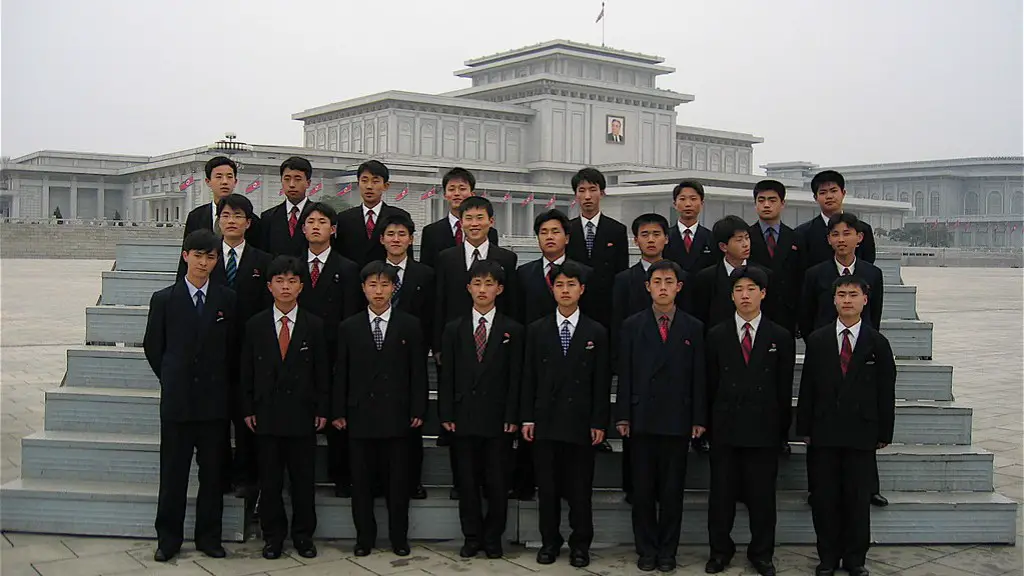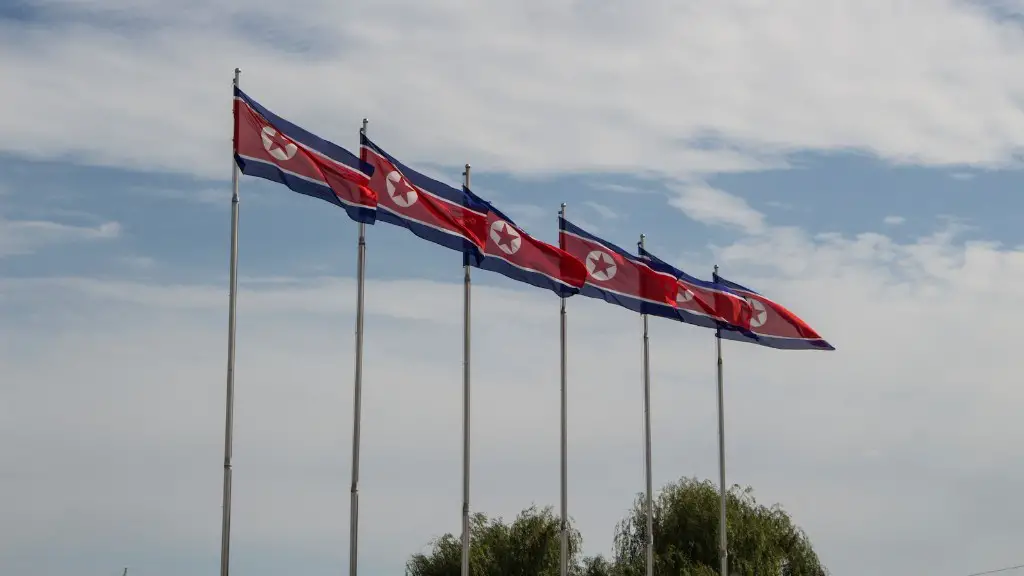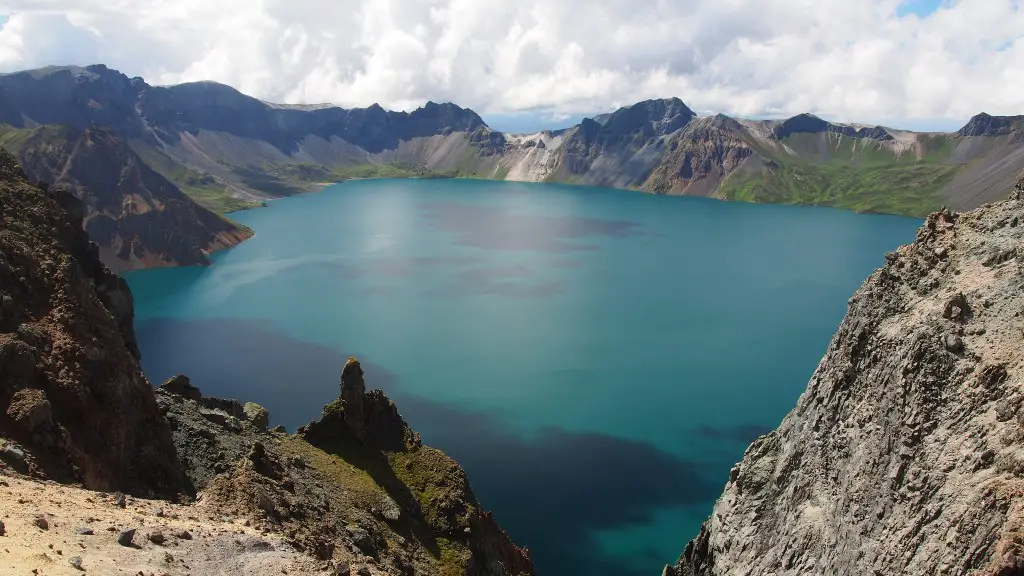The Official Stance
North Korea is officially known as the Democratic People’s Republic of Korea (DPRK) and it is widely recognized as one of the most oppressive and closed regimes in the world. There are significant restrictions on freedom of speech, assembly, movement, and other basic human rights. The government censors news, controls all media, and tightly regulates communications within and from the country. North Korea has a hereditary dictatorship in which the Supreme Leader, Kim Jong-un, has absolute authority. Human rights violations are widespread and the United Nations (UN) has heavily criticized North Korea for its regime of fear.
The official North Korean stance on freedom is that the country is already free from oppressive control by outside forces. The government views freedom as a matter of preserving national sovereignty rather than giving citizens more rights. It holds the belief that North Koreans are free to make decisions for themselves and that foreign interference in internal affairs is a threat to freedom.
Suppression Of Ideologies
North Korea suppresses any ideologies that threaten the regime’s control. This includes religious beliefs, personal opinions, and political ideologies. The government cracks down heavily on even the slightest hint of dissent. Political dissidents and those who speak out against the regime often face imprisonment, torture, and death.
The government also forbids access to foreign media and strictly controls access to the internet. Information coming from outside the country is heavily censored. It is estimated that only a few thousand people in North Korea have access to the internet, and only a select few websites are allowed to be visited.
The North Korean Economy
North Korea’s economy is highly unstable and the nation remains one of the poorest in the world. The government relies heavily on imports from China and other countries, and the majority of North Koreans are living in poverty. Human Rights Watch estimates that 18 million North Koreans are significantly food-insecure and frequently do not have basic necessities such as food, medication, housing, and clothing.
The North Korean regime relies heavily on control and restriction of freedoms in order to maintain its authority. By keeping citizens in poverty and oppressed, the government is able to control them and keep them from rising up against the system.
International Pressure
International organizations such as the United Nations and Human Rights Watch are increasingly putting pressure on North Korea to improve its human rights record. The UN has adopted resolutions condemning North Korea’s human rights violations and has urged the government to take action to end the abuse. The US and other countries have also imposed economic sanctions in an effort to push the North Korean government to take action.
However, despite this increased international pressure, the government of North Korea has refused to make any meaningful changes. The authorities have instead increased their efforts to suppress dissidents and have continued to ignore calls for human rights reforms.
Role Of China And The US
China is North Korea’s most important ally and has traditionally provided the country with food and fuel. However, many analysts believe that the relationship between the two countries is strained, particularly after China condemned North Korea’s recent nuclear tests.
The US is also a major player in the North Korean crisis, with President Trump taking a hardline position on the country. The US has placed strict economic sanctions on North Korea and has threatened military action if the country does not reduce its nuclear weapons program. However, the US has also offered to open up direct talks with Kim Jong-un if North Korea agrees to denuclearize.
Creative Solutions
Many people have proposed creative solutions to the issue of North Korean freedom. One possible solution is to use economic incentives to encourage the government to make reforms. Incentivizing reform could potentially give the government an incentive to make changes to its system and potentially lead to more freedom for the people.
Others have suggested using international pressure to push the North Korean regime to make changes. By increasing economic sanctions and threatening further action, the international community could put pressure on the North Korean government to take action.
Popular Opinion
The North Korean people are largely isolated from the outside world and have few avenues to express their opinions. However, a growing number of citizens are finding creative ways to express their desire for freedom and the government has become increasingly sensitive to any type of dissent.
In recent years, citizens have been braver in their calls for greater rights and protests have become increasingly common. Additionally, numbers of North Koreans escaping the country have been on the rise and these refugees have been highly vocal in speaking out against the regime.
The Way Forward
Given North Korea’s opaque political system and oppressive regime, it is unclear what will happen next. It is likely that the international community will continue to pressure the North Korean government in the hopes of making meaningful changes to the country’s human rights record.
Increasing the pressure on the North Korean government is likely to be the only way to bring about any real change. However, this approach has its risks and could lead to further instability and conflict. The world should therefore tread carefully when approaching the North Korean situation and hope for peaceful progress in the coming months.
Alternatives To Pressure
Some experts have proposed alternatives to direct international pressure as a means of improving the situation in North Korea. These alternatives include diplomatic outreach, cultural exchanges, and other forms of engagement with the North Korean people.
The idea is that these activities could gradually improve public opinion, create economic ties, and ultimately build trust between North Korea and the outside world. This could potentially lead to a greater openness to international influence and increased freedoms in the long run.
Role Of NGOs
Non-governmental organizations (NGOs) have been an important part of the fight for North Korean freedom. This includes groups that focus on providing humanitarian aid to North Korea, advocating for human rights, and supporting North Koreans fleeing the country.
These NGOs play a critical role in providing support for North Koreans and in raising awareness about the situation in North Korea.
Conclusion
While North Korea is one of the most oppressive and closed regimes in the world, the situation is not completely hopeless. With increased international pressure and creative solutions to the situation, it is possible to bring about real change in the country and enable North Korean citizens to enjoy greater freedoms.


